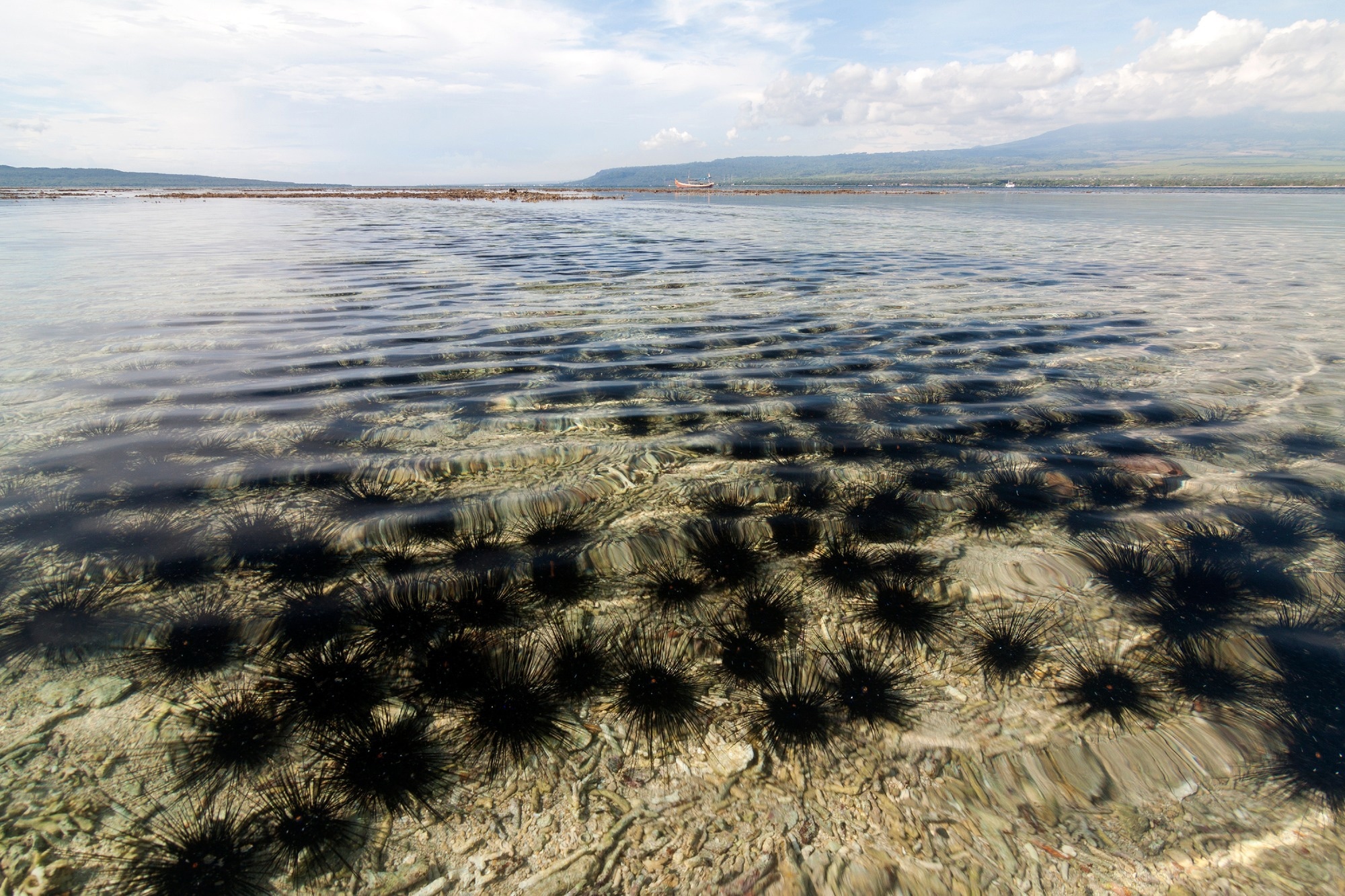A team of Italian scientists has identified potential anti-inflammatory and vasculoprotective effects of red cell extracts of the Black Sea urchin Arbacia lixula. The study has been published in the journal Nutrients.
Marine invertebrates, such as echinoderms, are natural resources of many bioactive compounds with potential pharmacological properties. Sea urchin is one of the species of echinoderms that have been used in traditional Chinese medicine since ancient times.
Aqueous and organic extracts of sea urchins are known to have several bioactive compounds with pronounced antioxidant, anti-inflammatory, anti-microbial, anti-diabetic, gastroprotective, vasculoprotective, and many other biological activities.
In the current study, scientists have evaluated the potency of coelomic (main body cavity) red-cell extracts of the black sea urchin Arbacia lixula to prevent endothelial cell activation and monocyte recruitment major hallmarks of atherosclerosis.
Atherosclerosis, characterized by oxidative stress and chronic low-grade inflammation, is a leading cause of cardiovascular disease. Previous studies have shown that echinochrome A, a bioactive compound derived from sea urchins, acts as a vasculoprotective compound by preventing lipid peroxidation, platelet aggregation, chronic inflammation, cardiac and mitochondrial dysfunctions, and vasoconstriction. This compound is clinically used in cardiology and ophthalmology.
 Black sea urchin (Arbacia lixula) Image Credit: Jhon Images / Shutterstock
Black sea urchin (Arbacia lixula) Image Credit: Jhon Images / Shutterstock
Study design
The scientists used an in vitro model of atherosclerosis to determine the anti-inflammatory and vasculoprotective effects of the red cell extract of black sea urchin. Human microvascular endothelial cells were exposed to pro-inflammatory cytokine tumor necrosis factor-alpha (TNF-α) to develop the study model of atherosclerosis.
The total phenolic content and antioxidant activity of coelomic red cell extracts of the black sea urchin Arbacia lixula was determined to verify the presence of antioxidative bioactive compounds.
Study experiments were conducted by culturing human endothelial cells in the presence or absence of black sea urchin extracts for four hours, followed by exposure to TNF-α for 0 – 18 hours.
Important observations
The analysis of cytotoxic activities of the black sea urchin extract revealed no adverse effects on the viability and morphology of endothelial cells at any tested concentrations.
It is known that TNF-α exposure induces inflammatory changes in endothelial cells, leading to increased adhesion of monocytes to activated endothelial cells. This event was observed in the current study when endothelial cells were exposed to TNF-α only.
However, the pretreatment of endothelial cells with black sea urchin extract led to a significant reduction in the number of adhered monocytes in response to TNF-α exposure. Furthermore, the pretreatment was found to reduce the expressions of two adhesion molecules, vascular cell adhesion protein 1 (VCAM-1) and intercellular adhesion molecule-1 (ICAM-1), on the endothelial cells. This might be the reason for reduced monocyte adhesion on TNF-α-activated endothelial cells.
TNF-α-mediated induction of pro-inflammatory cytokine and chemokine expressions is a major determinant of endothelial activation and dysfunction. This subsequently increases the recruitment of monocytes on activated endothelial cells.
The pretreatment with black sea urchin extracts was found to significantly reduce the expression of TNF-α-stimulated cytokines and chemokines. Moreover, the pretreatment was found to significantly reduce TNF-α-induced chemotaxis of monocytes toward activated endothelial cells.
Regarding the mode of action at the molecular level, the black sea urchin extract was found to prevent the activation of the nuclear factor-κB (NF-κB) signaling pathway by TNF-α. NF-κB is a well-documented transcription factor responsible for regulating expressions of adhesion molecules, cytokines and chemokines, and other pro-inflammatory mediators.
Study significance
The study highlights the potency of black sea urchin Arbacia lixula extract in protecting microvascular endothelial cells from TNF-α-induced inflammatory responses.
The potential anti-atherosclerotic properties of Arbacia lixula extract detected in the study could be useful for developing dietary supplements or drugs to prevent and treat cardiovascular disease.